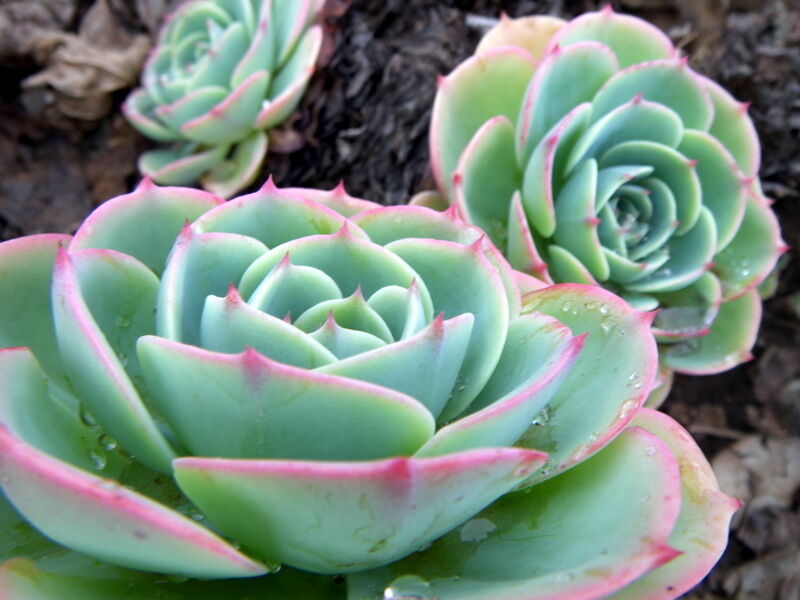Tyrrell: Take care of a plant, take care of yourself
Columnist Eileen Tyrrell encourages you to take care of a plant because it reminds you to take care of yourself.
August 31, 2020
One of the best things I have done for my mental health so far this school year was to fill my room with plants.
They line my windowsill and loom out of the corners of my room: a colorful croton, a Venus flytrap, a cactus, a leafy pothos trailing its vines down my bookcase and a succulent. They all have names. But I promise I’m not a crazy plant lady or a hoarder — my plants serve as a reminder. I take care of them, and I take care of myself.
The croton is a tropical plant; he needs as much sun as I can give him, and I move him around my room hourly to keep him in the light. Because of this, I always have my blinds open, and my room has been dappled with sunlight every morning for the past three weeks. I think that this benefits me at least as much as it benefits the croton. (Actually, I know it benefits me — vitamin D is the ultimate mood booster when it comes to productivity, seasonal depression and your circadian rhythm.)
The succulent, cactus and pothos are all low-maintenance dudes. They mostly just look pretty. As for my Venus flytrap, he’s neediest of all. I make sure he has plenty of water, and then I do the same check-in on myself. My morning tendency is to mainline caffeine and neglect my water bottle, but the Venus flytrap puts that in check, and the $5 I spent at Walmart buying him pays dividends in hydration — another underrated factor in mental health. Drink your water, people! And three weeks from now, when all our classes are online and everyone is in quarantine, you can still maintain some intimacy in your life by sharing a water bottle with your plants.
Don’t just take my word for it, though — there’s some hard science out there connecting the presence of plants with reduced stress, increased focus and improved mood, both at home and in the workplace. Plants have been shown to speed up the recovery of hospital patients, affect the levels of compassion we feel for others and improve learning capability. Even NASA recommends houseplants to improve the air quality in your house! At this point, not adopting a plant seems downright neglectful to yourself.
We’re only three weeks into the semester, and, already, it has been a bit of a rollercoaster. Skyrocketing COVID-19 cases, hybrid class formats, football season is up in the air AND we’re in an election year — I think we all could use some stress relief, no?
Take my word for it, the easiest thing you can do — aside from dousing yourself in lavender essential oil — is add some green to your room. If you aren’t sure where to start, I’ll help you out. Snake plants, potho and spider plants are all good beginner plants (i.e. hard to kill). Check out Walmart and Lowe’s to get some good ones for under $15 — most of the time, they’re even labeled with care instructions. When you feel ready to level up, grab a succulent, croton or cactus. (And, speaking from tragic experience, save any sort of palm for an environment where you’re really sure it can thrive.)
Once you’ve adopted a new plant (or three), make it your mission to keep that bad boy alive. Trust me, you can do it — after all, plants just need the same thing we do: some sunshine, water, a little bit of care and attention. In return, you’ll get a companion for those long days of quarantine, fresh air, automatic home decor and a guaranteed mood boost.
Check on that plant every day, and, while you’re at it, check in on yourself, too. Your mental health is like another plant in the room that needs some daily love and attention. But unlike that beginner succulent that inevitably ends up overwatered and killed, mental health is an attribute that stays with you for your whole life — no matter how little attention you pay it. So buy a plant, and treat it with love. Then do the same for yourself.

















